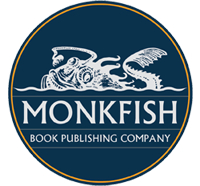An Introduction for the Curious, the Skeptical, and the Spiritual but Not Religious
James Ishmael Ford
Paperback
978-1-958972-76-2
US $19.95
eBook available
May 2025
Zen as the ideal path for those who have left institutional religion behind
Do you feel there is something more to be found in life? Is there something more for your life? Traditionally people turn to religions to find that “more.”
Today, when cultures are in upheaval and traditional religions are collapsing, a prominent Zen teacher explores the possibility of a spirituality at the heart of all religions.
Zen at the End of Religion is a brief introduction to Zen as a practical expression of perennial wisdom, a “naturalistic perennialism.”
The book offers a simple introduction to the core of Zen’s why and how. While Zen is a rich and varied tradition, this introduction focuses on the essentials, the foundations of the Zen way. This book explores the Four Noble Truths, the Two Truths, the Ten Ox Herding Pictures, Zen meditation, samadhi, koans, enlightenment, and more.
“When I hear James Ford’s words, something in me wakes up. He has the rare ability to communicate something that is much larger than himself. We are all lucky to be in contact with this gift.” —Gesshin Claire Greenwood, author of Bow First, Ask Questions Later
Author Bio
 James Ishmael Ford has been called one of the senior Zen teachers in North America. He is both a Soto Zen priest and a Dharma successor in the Harada Yasutani koan tradition. Ford is also an ordained Unitarian Universalist minister who served in parishes for a quarter of a century. Today he lives in Los Angeles with his spouse Jan Seymour-Ford. He is the author of seven books on aspects of Zen Buddhism including If You’re Lucky, Your Heart Will Break and The Intimate Way of Zen: Effort, Surrender, and Awakening on the Spiritual Journey.
James Ishmael Ford has been called one of the senior Zen teachers in North America. He is both a Soto Zen priest and a Dharma successor in the Harada Yasutani koan tradition. Ford is also an ordained Unitarian Universalist minister who served in parishes for a quarter of a century. Today he lives in Los Angeles with his spouse Jan Seymour-Ford. He is the author of seven books on aspects of Zen Buddhism including If You’re Lucky, Your Heart Will Break and The Intimate Way of Zen: Effort, Surrender, and Awakening on the Spiritual Journey.
Praise
“Trappist monk Thomas Merton wrote, ‘Zen is a way of insight.’ Then he suggested what Zen is not: a system or method to be institutionalized, the way western society has domesticated religion. James Ford’s insightful and honest introduction to this venerable tradition of meditation and inner transformation just might help us see what Merton meant—and why Zen can be a great blessing for our time, even for those who identify as spiritual but not religious.” —Carl McColman, author of The New Big Book of Christian Mysticism and Read the Bible Like a Mystic
“James Ford has long been an honest and thoughtful voice on matters spiritual and religious. In Zen at the End of Religion he shines a light on Zen as a path for those who are alienated from religious institutions but are still seeking—something. Something deep, boundless, intimate. Zen at the End of Religion is a clear and authentic introduction to Zen.” —Barbara O’Brien, author of The Circle of the Way: A Concise History of Zen from the Buddha to the Modern World
“When I hear James Ford’s words, something in me wakes up. He has the rare ability to communicate something that is much larger than himself. We are all lucky to be in contact with this gift.” —Gesshin Claire Greenwood, author of Bow First, Ask Questions Later
“James Ishmael Ford has given us the perfect introduction—or re-introduction—to living and practicing Zen Buddhism in twenty-first century America. In turns accessible, direct, and erudite, he plays in the deep waters of Zen with obvious love and delight, born of decades of practice and teaching. This delight is contagious!” —Zenshin Florence Caplow, author of The Hidden Lamp: Twenty-Five Centuries of Awakened Women
Blurbs for Ford’s 07/24 book with Shambhala:
“This book is about the messy path of Zen as lived and taught by James Ford. It tells no lies. Nothing linear or logical, no quick ecstatic fix, only a lifetime of longing and steadiness, of pilgrimage. It will steer you through the vastness of Zen practice and show you how to live a life that isn’t just spiritual, but real.” —Eve Myonen Marko, co-author, The Book of Householder Koans: Walking Up in the Land of Attachments
“A marvelous combination of stories, teachings, and practices that is part memoir and part storytelling about Zen, spirituality, philosophy, and life. It is such a well-rounded work because its author has tested his understanding against more than a half-century of life and practice that has shorn away both the illusions of this world and the illusions of an oversimplified view of Buddhism. To be savored, like fine wine, or if one prefers, fine tea.” —Mark Unno, author of Shingon Refractions and president of the Society for Buddhist-Christian Studies




